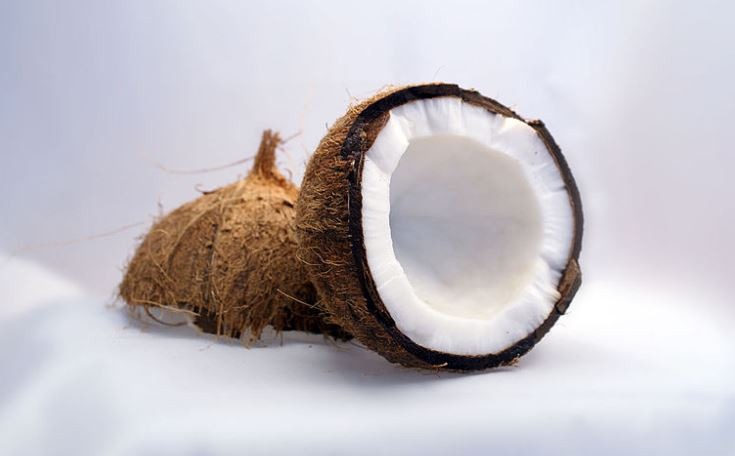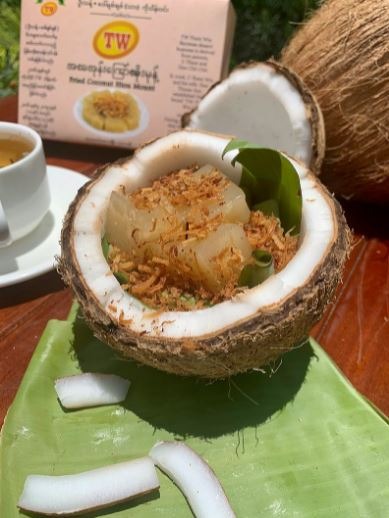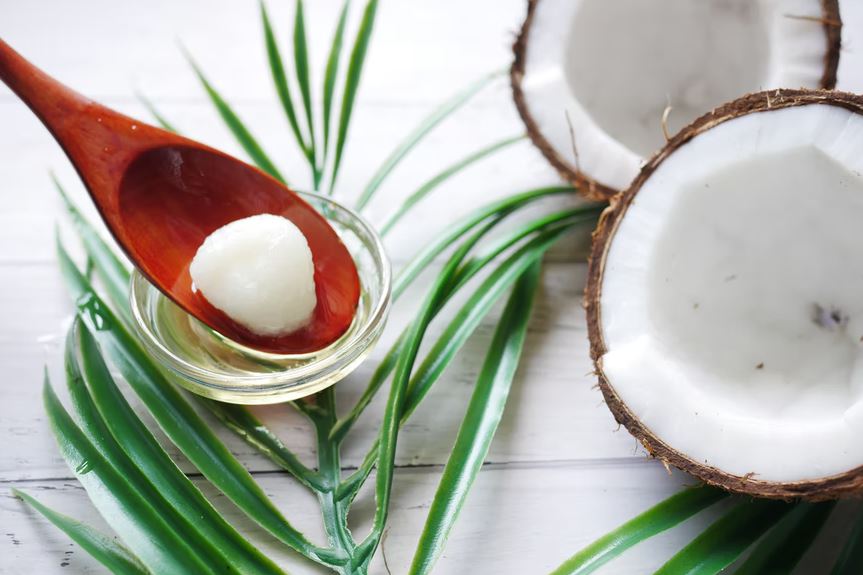Many people are familiar with coconut oil and its benefits. It is used around the world both for cooking and cosmetic purposes. However, what the majority is not familiar with, is coconut butter. Even though both look more or less similar but have several different characteristics.
Amongst the two, coconut oil tends to be more popular as people mainly use it for cooking and treating several skin concerns. Regardless, considering their usage and popularity, it is only right that we discuss both products in detail and discover the benefits they have to offer. Let’s begin.
What’s the Difference Between Coconut Oil and Coconut Butter?

source:Robert Wetzlmayr, CC BY-SA 3.0, via Wikimedia Commons
The coconut oil vs. coconut butter debate generally ends up in confusion. With people trying hard to look for unique features, they often conclude that both are the same. Infact, there is a huge difference between the two. For instance, coconut oil is made from coconut meat through cold-pressing oil.
It tends to be solid at room temperature and turns into a liquid when heated. In terms of both odor and flavor, it has an oily, mild coconut flavor.
On the other hand, coconut butter is usually termed the peanut butter of the tropics. It is made by pureeing the coconut meal along with the oil. Although the spread is solid at room temperature but turns into a liquid when heated. As a result, you have a spread with a strong coconut odor and flavor.
Another major difference between coconut oil and coconut butter is that the former is used to cook food at moderate to high temperatures. Plus, it is also used for skin applications.
Are Coconut Oil and Coconut Butter Good for You?
The high saturated fat content in both coconut oil and coconut butter is controversial. According to The American Heart Association, diets containing high saturated fats can lead to an increase in cholesterol levels, which ultimately increases the chances of heart stroke and attack.
However, most coconut advocates argue that the majority of studies conducted on saturated fat are outdated. Instead, they argue that most saturated fat is lauric acid, which decreases the risk of disease as it is good cholesterol.
Although not many studies have focused on studying lauric acid and its benefits but several small studies have concluded that it helps with cholesterol. At the moment, researchers argue that the overall benefits of both coconut oil and butter depend on an individual’s diet and activity level. There are simply no benefits to reap if the user follows a bad diet and does not exercise regularly.
Coconut Butter vs Coconut Oil Nutrition
When it comes to discussing the nutrition of both coconut butter and coconut oil, there are surprising differences. Coconut oil is mostly made of saturated fat with one tablespoon carrying around 14 grams.
Coconut butter also contains saturated fat as it is made from the whole coconut, having around 10 grams per tablespoon. Additionally, it does not have some nutrients like fiber like coconut oil. One tablespoon of coconut butter has around 2 grams of dietary fiber.
Some other important nutrients included in coconut butter are protein, potassium, magnesium, and iron. However, both coconut oil and butter tend to be high in calories. There might be a difference depending on the brand but both products have more or less about 110 to 120 calories per tablespoon.
Coconut Oil vs Butter Nutrition for Beauty
Everyone wants to have shiny, smooth, and wrinkle-free skin. Considering the amount of junk food we consume and exercise on a daily basis, one should not be surprised if they soon begin looking older than their actual age. To cover that, the majority spends a huge amount on cosmetic products.
The fact of the matter is that you will not be going to need all that if there is coconut oil or coconut butter by your side. The fatty acids help reduce dry skin, wrinkles, and age spots. At the same time, there is little research on the benefits of coconut oil and butter on the skin. But people still incorporate them in their skincare routines as moisturizers, balms, eye makeup remover, etc.
Cooking with Coconut Oil and Coconut Butter

source: CalystaSenior99, CC BY-SA 4.0, via Wikimedia Commons
As mentioned previously, your diet and daily intake have a direct relationship with the way your skin will look in the future. Over the years, hundreds of thousands of studies have been conducted on the relationship between food items and skin health. The majority of studies were able to conclude that diets can either make a person look younger or older than their actual age.
This is why, instead of using oils that are most likely to raise health concerns, it is advised to use coconut oil. It can withstand high temperatures and is excellent for frying and sautéing. In addition to that, coconut oil can be used as a spread or a substitute for vegetable oil. Refined coconut oil versions have little to no coconut flavor while the extra virgin coconut oil is not as neutral.
Meanwhile, coconut butter is usually sold in jars, which can be spread on almost anything. You can add it to your smoothies, oatmeal breakfast or pine colada, etc. If you are already concerned about your skin and cholesterol levels, then both coconut oil and coconut butter are going to be your best option.
You can easily come up with your favorite delicious recipes without having to be concerned about your skin and cholesterol levels. Both items are perhaps amongst the very few that help improve health upon consumption rather than harming it.
Final Word
Concluding, both coconut oil, and coconut butter have several benefits to offer. But there are slight differences when it comes to the production method and uses. While coconut oil is used for both cooking and skin applications, coconut butter is simply used as a spread.
